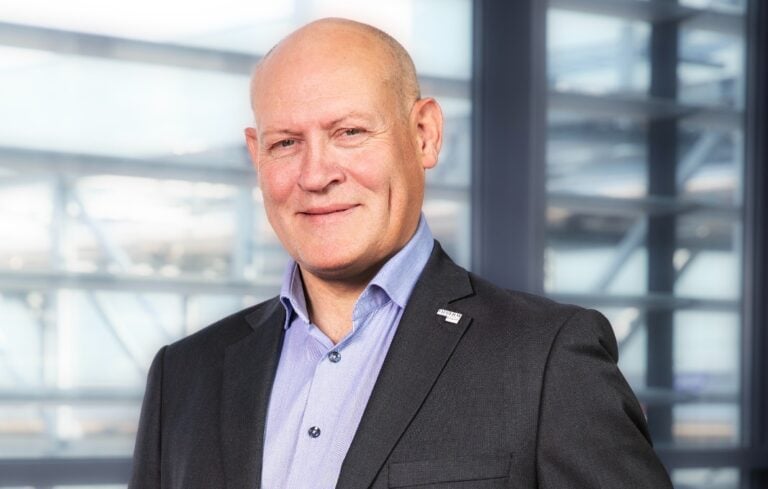Edward M. Kopko has been the president, chief executive officer and chairman of the board of Ft. Lauderdale, Florida-based Butler International, Inc., since January 1987. Butler International, with 3,800 employees, is a worldwide provider of technical and technology services, helping clients such as Boeing, Caterpillar, Citigroup, Los Alamos National Laboratories, Merrill Lynch, Verizon, and many others.
Mr. Kopko is chairman and chief executive officer of CE Group and Chief Executive Magazine, where he is publisher. Chief Executive Magazine is a leading publication that has been devoted to publishing articles on strategy and issues for chief executives for more than twenty seven years. Mr. Kopko holds a B.A. degree in economics from the University of Connecticut, an M.A. in economics from
A lot of critics are taking potshots at CEOs these days. They make too much money, they have too much power, and they run companies- like Enron and Arthur Andersen-only to line their own pockets at the expense of shareholders, employees, and the public, or so the story seems to go. Do CEOs feel as though they’re under siege?
Chief executives generally believe that they are not well understood and have been made almost into cartoon characters by some in the media. When was the last time you saw a movie where the CEO of a company was depicted as a good guy? They may not be under siege as they were back a few years ago during the Enron period, but business leaders still have very low ratings from the general population.
Yet you say that the CEO is “perplexed” about how to respond to these attacks. Why?
Most CEOs I have talked with do not believe they should defend themselves and their work. To their way of thinking, actions speak louder than words. They have a point, of course, but we all should be doing a better job of explaining why business contributes to the general well being of society. I believe that much work needs to be done in educating our country on economics and the important and noble roles that business leaders have in creating such wonderful progress for the world.
You have said that the majority of chief executive officers run their businesses in an ethical way. How do business leaders begin to communicate that and change the public’s perception of what they do?
I believe that most companies have communicated their policies and approaches for many years. And most companies are managed according to these stated principles. But most people are not looking at these policies and approaches because they do not make news. Honesty is not sensational, unfortunately. Companies have long had stakeholder-based policies that have holistic views of their roles to provide good services, quality employment and have positive community involvement. Unfortunately, a few wellpublicized stories of some rogue companies overshadow the years of great work of many. Those are the names that too many people remember.
Is there a successful strategy or tool for separating a large company from other public corporations whose reputations have been maligned because of serious scandal? In other words, how can business leaders disassociate themselves from leaders with serious integrity issues?
It’s very simple. As a business leader, you point to the record of your company. You do not condone unethical practices. How important is the chief executive in motivating and instilling a sense of morality and ethics in business organizations?
You lead by example. It starts at the top and is part of the culture of the company. A good example is product development, which is something that is at the core of your operations. In today’s highly competitive business environment, it is very difficult to “cheat” your customer with an inferior product. Some companies might get away with it for awhile, but that is not a strategy for long-term growth. If you cheat, you just don’t last in business. Of course, these fundamental principles apply to relationships with your employees and business partners and in fact everything else you do.
Aren’t we really talking about character? Can a CEO-for better or worse-change his or her stripes simply by pledging allegiance to a corporate ethics policy?
It is about character and it is about institutional character. Organizational values are often translated into personal conduct, for better or worse. As I mentioned, most companies have strong ethics on how they treat customers and employees. CEOs know that it is the promise of good service and fair treatment that is the bedrock of their existence. It’s not a mystery.
How do you see your work at Chief Executive Magazine shaping and contributing to the standards of morals and ethics with business leaders?
I see the work of Chief Executive Magazine contributing significantly to the way CEOs improve in their roles as leaders. We do this in many way-from peer-to-peer sharing of best practices to reporting on how successful companies operate. We also have tried to clarify for the CEOs and our many readers that most businesses have an inherently positive nature to them. They solve problems. Everything from food distribution, healthcare, housing, finance, and education are more readily available to serve us and at prices that are the best that technology today has to offer. But, as we know, most CEOs and companies do not do a very good job in communicating this. Research show that Wal-Mart, for example, has saved poor people more money through lower prices than any government program. Yet Wal-Mart is vilified at times. Chief Executive Magazine reports on the good and the bad of CEOs and their companies and on balance we see our work helping to improve the state of the business community.
Many business leaders view charitable works and community relations projects as the main way to show an organization’s high moral purpose? Is that sufficient?
The higher moral purpose of a business organization and the people who make it go is to first serve the community of users of their products and services. To provide a needed service, at a lower cost, with better technology, is my definition of a moral purpose. Think of health care and how the life expectancy of many millions of people has been dramatically extended in recent times. So you see, we are by definition better off when we exchange our services and trade with each other. Too many companies and CEOs feel apologetic for running a successful, profitable company. This is hard to understand. CEOs should see their success as an asset to the community. If they choose to support the community in some additional philanthropic or charitable way, that should not be viewed as the basis for their moral purpose. Charity and philanthropy are things we all should be doing, of course. But a well run successful business has a high moral purpose by definition.
Some CEOs have come under attack from Christian groups for supporting social causes that they view as immoral. How do CEOs navigate these controversial issues?
Most CEOs do not like being front and center on social issues. And that is understandable. Business is about serving customers and employees from very different walks of life. CEOs generally prefer their businesses to reflect an inclusive model so they avoid taking stands on many of these issues.
You serve as CEO for
My role is to help drive the values and vision for the business. As we said, it starts at the top.






